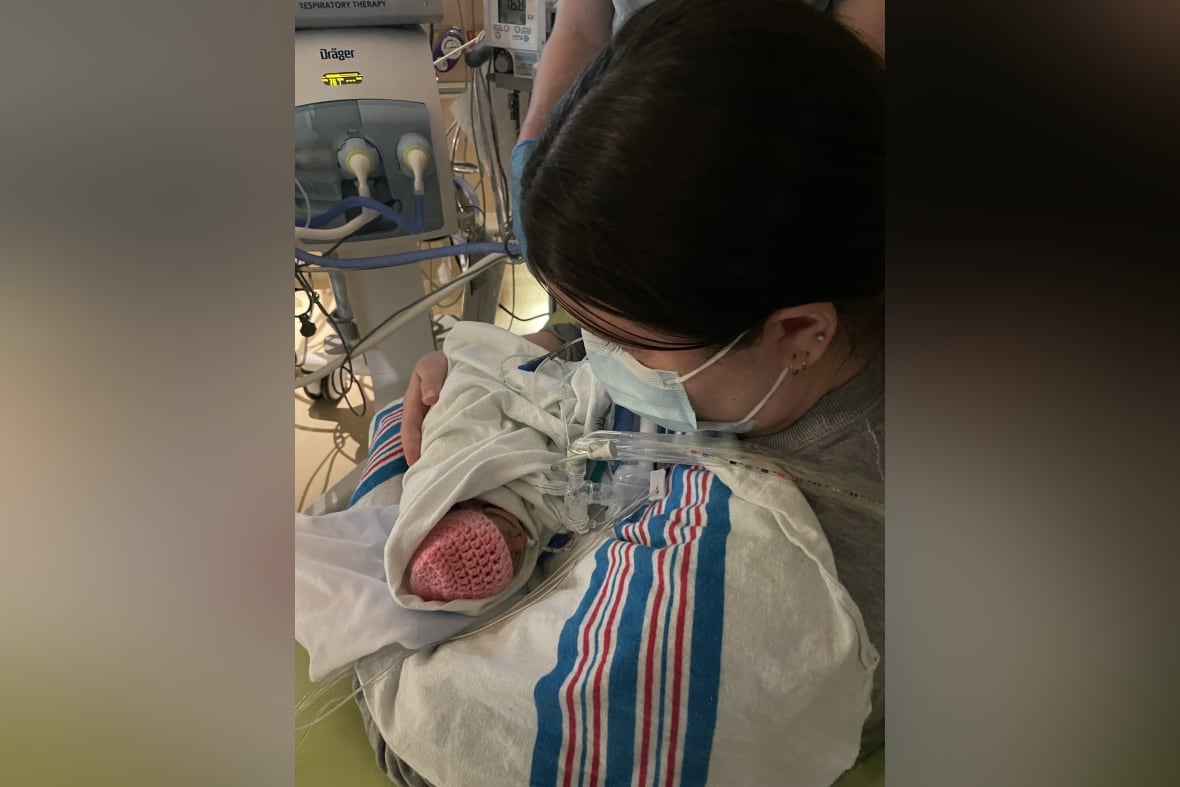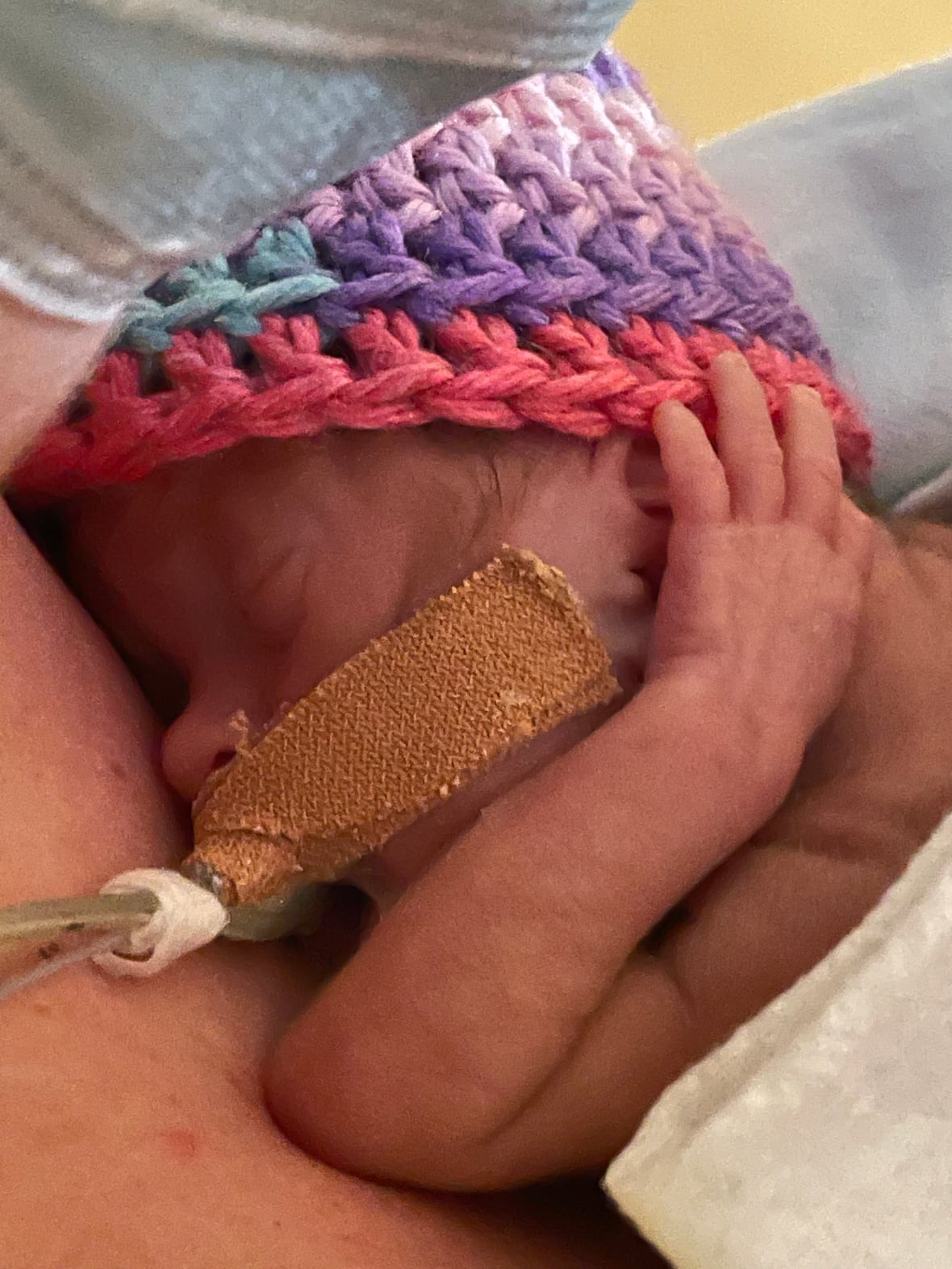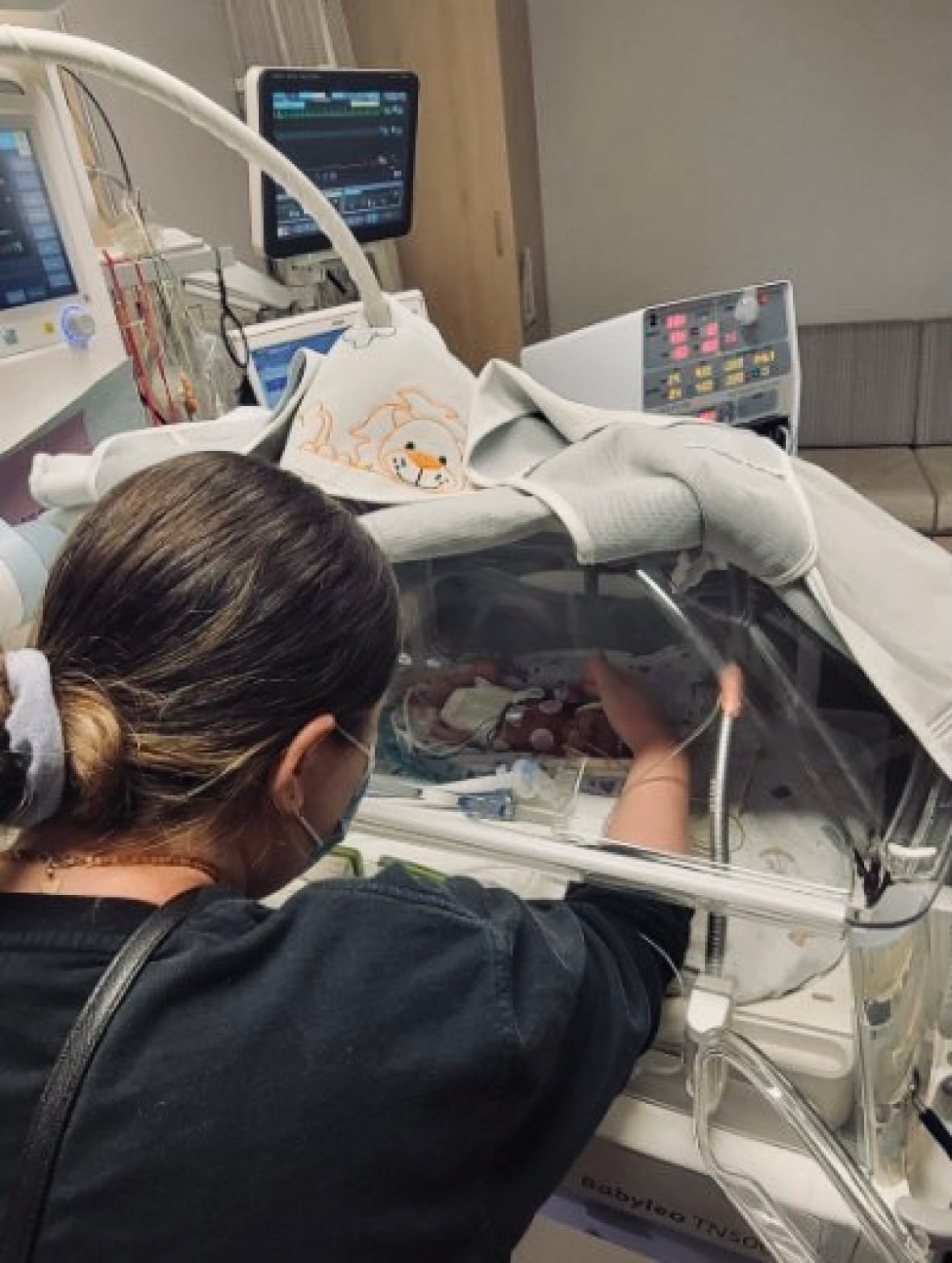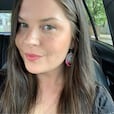My baby nearly didn't survive her birth. Her presence has made me a grateful mom
The NICU staff performed miracles to give my daughter a chance at life and me a chance to be mom
This First Person article is the experience of Lauren Helstrom, who lives in Saskatoon with her daughter Evee. For more information about CBC's First Person stories, please see the FAQ.
Right from the moment of her delivery, my daughter's life hung by a thread. I'd gone into labour 17 weeks before my due date, and something in my bones screamed danger.
After getting admitted at the hospital, I was rushed onto a stretcher and wheeled through double doors, past people too afraid to meet my gaze. It felt like the room itself was holding its breath. I was supposed to say goodbye.
A labour and delivery nurse kneeled beside me, gripped my hand and whispered, "I'm not leaving you." I didn't know how badly I needed those words until they reached me.

Motherhood didn't begin the way I dreamed. But strangers in masks and gowns gave me the chance to be the mother I dreamed I could be.
My daughter, Evee, was born at 23 weeks and four days gestation, weighing 561 grams — just the size of a bag of candy.
She emerged still wrapped in her amniotic sac — skin like wet rose petals, lungs too tiny to rise and fall.
She was silent. No heartbeat. Not breathing.
- Read more CBC First Person stories here
But the neonatal intensive care unit (NICU) team was there and ready, not to mourn, but to fight. A resident stepped in to resuscitate her. I will never forget his face — the tears in his eyes as he fought for her life with both hands.
They brought her back. They saved her. They saved us both.

A ghost of a mother
The NICU was like another planet. Foreign. Unforgiving. Sacred.
I wasn't handed my baby. I wasn't even allowed to touch her. She lay inside a glass box, her chest flickering with effort, tangled in wires and tubes. Machines surrounded her — blinking, hissing, screaming a language I didn't understand. I sat at her bedside, afraid to breathe too loud and overwhelmed by alarms that wouldn't stop. They pierced my eardrums and stabbed my heart.
The first time I sang You Are My Sunshine, I didn't make it past the line, "Please don't take my sunshine away." I wept into my hands.
Was I a mother? I couldn't cradle my baby or feed her. I needed permission just to place my fingertip on her paper-thin skin. I felt like a ghost of a mother. Invisible. Useless. Failing.
I was haunted by the feeling: "You're saying goodbye."

Evee spent 130 days in the NICU. She battled retinopathy of prematurity, chronic lung disease, seizures, an open duct in her heart and the worst yet — a grade 4 brain bleed and hydrocephalus. Through it all, the NICU staff were the hands that held me when I collapsed.
And yet, within that grief, there was devotion.

I changed her micro-sized diapers with trembling hands. I started to feel like her mother not in dramatic moments, but in small sacred ones — when she grasped my finger, or when a nurse said, "She knows your voice." When another NICU parent passed me in the hallway and gave a nod like we shared something unspoken. We were part of a club no one wanted to join.
Even after we came home, we faced a new chapter filled with medical complexity, with several continued check-ups that continue for Evee today.
And the shadows continued to visit. Post-traumatic stress after the NICU is not rare. It is real. It is silent. And it can destroy you if you carry it alone. The wounds don't close just because you've been discharged.
But slowly, we've emerged from that dark time in NICU.
My daughter didn't walk or talk until after the age of two. But once she started — she ran, she talked, she laughed. Now, at age three, Evee is vibrant and full of life. She dances barefoot in the kitchen and sings with her whole chest. She calls me "Mommy" like it's the most natural word in the world.
I became a mother in a room where I once felt I had to say goodbye. I became a mother beside ventilators, signing forms, praying silently. I became a mother when I learned to hold hope and fear in the same breath.
I became a mother the moment I refused to stop asking for help. I became a mother when I stayed by her side while others left the room. I became a mother when I looked at her — impossibly small, impossibly alive — and whispered:
"Stay with me, my girl."
And she did.
Do you have a compelling personal story that can bring understanding or help others? We want to hear from you. Email sask-first-person-grp@cbc.ca to learn more.

